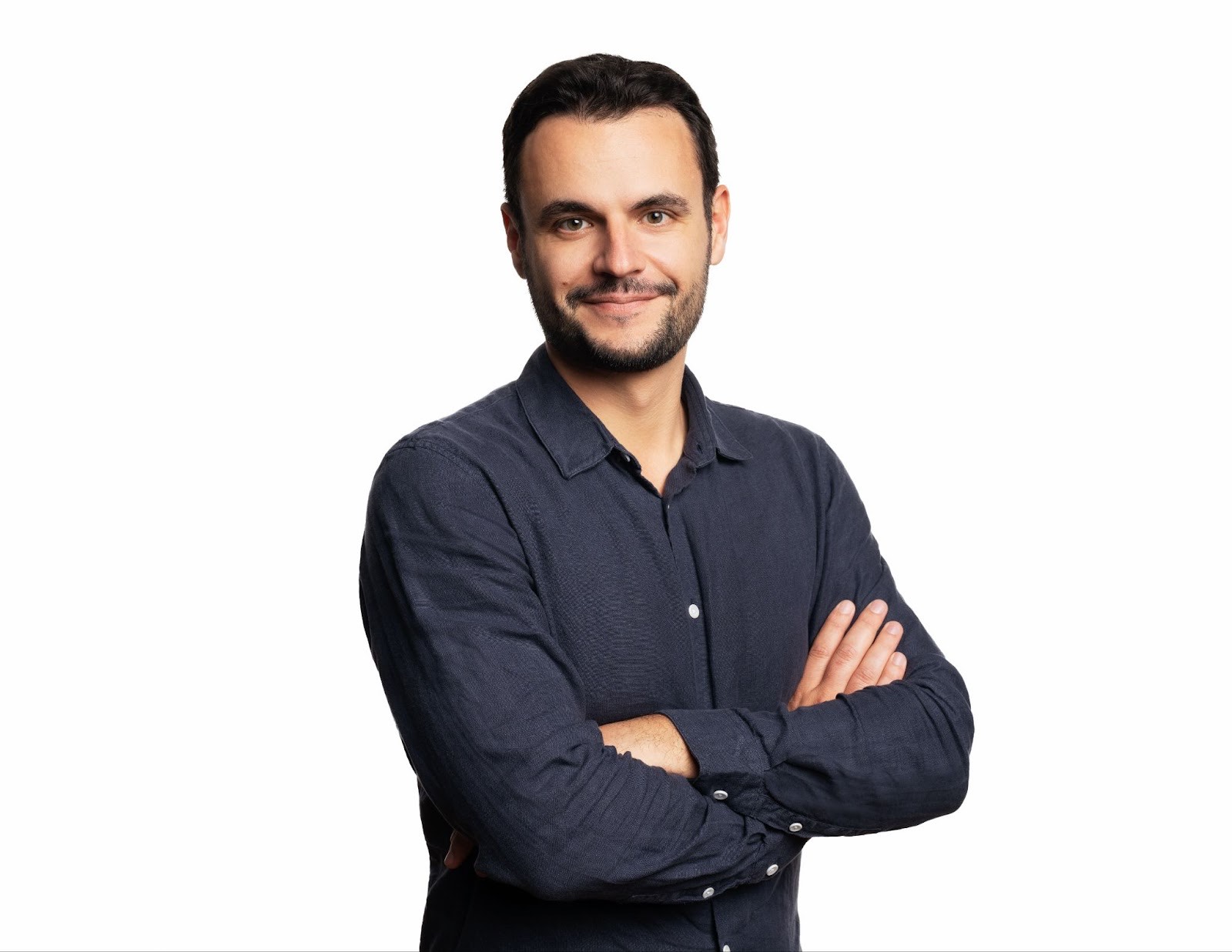Johann Kerbrat, Robinhood Crypto GM: “US regulation to be late compared to EU and Asia”
|
- Robinhood Crypto General Manager says they are ready to work with any US administration, no matter who wins the presidential election.
- Institutional adoption has risen crypto volume baseline, the executive says.
- Crypto accessibility needs to improve, “it’s very daunting right now”, he says.
Johann Kerbrat is the Crypto General Manager at Robinhood, the trading app used by many US retail investors during the 2020 meme stock mania. FXStreet interviewed him at the European Blockchain Convention held in Barcelona, where he explained the plans for the company’s worldwide expansion, while also discussing regulatory matters, and where the crypto space is going in the near future.

Johann Kerbrat. Source: Robinhood
Q: Robinhood was in the middle of the retail frenzy in 2020 and 2021, and it was easy to draw parallels between meme stock and meme coin mania. Are you seeing more mature behavior from traders now?
Our crypto team is giving access to what customers are interested in. When listing assets, we have a pretty long framework to make sure that the assets on the platform are secure, and that we can operate with them.
The behavior [from traders] has changed. It is just a different world. Back in the day, there were no institutions. Now we have Bitcoin and Ethereum ETFs, so it's a different type of market.
Q: What are the main similarities or differences between the typical stock trader that you have on the platform and crypto traders? Is there a lot of crossover between them?
There is some crossover. One of the things that people love the most about Robinhood in the United States is that you can actually go between equities and crypto and vice versa. In the EU, we are only available on the crypto side, so they don't have a choice. But people are just interested a lot more in crypto. We have investors that are brand new to crypto, and they will just start going from trading one of their stocks to one of the coins, then get slowly into the crypto world.
We are also seeing a progression from just holding assets to actually transferring them out using a wallet and getting more into Web3. This is what is most interesting – seeing that people are not just holding the asset on the platform.
Q: What do you expect with the acquisition of Bitstamp? Are you targeting European and Asian markets from a retail trader perspective, or is it more of an institutional approach?
It is a combination of both. The first main reason is the global expansion, as Bitstamp holds about 50 licenses across the world and they have a globally used exchange, which we didn't have. Then we have the institutional factor: Bitstamp already has a well-established business with institutions, so it is a huge accelerator for us. Until now, we have been focused mostly on retail, and this will actually allow us to offer a lot of products that institutions can use.
US regulators should adopt similar framework to MiCA
Q: Regulation is a huge topic. We now have MiCA in Europe, and there seems to be a bit more clarity than in the United States. How do you foresee this evolving?
The MiCA framework has a lot of pros and cons. It is not perfect, but it has merit to actually exist, and it helps companies like ours to understand what we can offer to customers. This is why we decided to launch in the EU last year. We have been encouraging the US regulators to adopt a similar framework.
Q: What do you expect from the SEC, with all the trials that they have, including a Wells notice to Robinhood?
We have been disappointed by the Wells notice. We have a highly regulated business, we are licensed by the SEC and by FINRA. We are regulated by the New York DFS on the crypto side. We are used to working with regulators. It's just a question of continuing to work together, and hopefully next year we'll have more good news for the crypto space.
Q: Do you see more chances of reaching a settlement with the SEC or rather going to court?
I can’t talk about the specifics, but the main goal is to discuss with them. We think we have a very strong case. We took a position that is safety first. We only listed 15 assets in the US. We never offered lending or staking. Compared to other exchanges that listed hundreds of assets, we took a position compatible with what they are looking for. When they encouraged us to register, we did all the work. What I am excited to see is what comes next, we'll see if we register something.
Q: Do you think the US election might bring more clarity? Trump has been very vocal about being pro-crypto and Harris seems to be a bit less clear. How do you expect the outcome of the election to influence the SEC and the regulation in the US?
Robinhood has been existing for more than a decade and we have been able to work with different types of administration, either Democrats or Republicans. My goal is to make sure that we can work no matter which side is winning in November. I'm hopeful that it's been clear at this point that we need regulation, otherwise we're going to be late compared to the EU and other places in Asia.
Q: So, do you expect the SEC to at least bring more clarity next year?
I don't expect it, I'm just hopeful. I don't know what the plan is.
Q: Does crypto need Gary Gensler gone from the SEC?
I don't know what it takes to be the chairman of the SEC, so I would not say he needs to go or not. What I think we need to get to is clarity on the regulation. That is important no matter who's the chairman.
Better accessibility and cost reduction, the keys for more crypto adoption
Q: Institutional demand in the ETFs has been subdued compared to the huge expectations. Do you expect institutional adoption to pick up, or was it overestimated?
I've been in crypto for more than 10 years. Back in the day, people would say that Bitcoin was something that institutions would never want to touch. Now we have more than 11 ETFs in the US only, and you also have ETPs in the EU. Right now, it is more a question of the markets, as interest rates are also pretty high, so there's less need for institutions to be active on the market, but we'll see how things evolve. You can see the volume now is higher than before the institutions came in.
Q: You come from a tech background. What do you think is the key added value that crypto needs to bring for more adoption in the coming years?
Accessibility is still lacking. Crypto was made by engineers for engineers, not thinking about the rest of the population. The first time you have to set up a wallet or go on DeFi, it's very daunting. I've seen some people trying to do it in front of me, and it's sad to see how many steps it takes and how many fees you have to pay.
Then, wider use of blockchain technology. In stock trading, months ago we celebrated the development of T+1 settlements, which reduced the settlement cycle to one day. Whereas on crypto, Bitcoin can take way less than 10 minutes to settle. The tokenization of real world assets, including equities, could be a game changer and solve a lot of problems, and make it cheaper for customers by reducing intermediaries. From a trading perspective, it can help retail traders around the world, no matter the asset they trade.
Q: Sometimes, crypto trading works in some mysterious ways compared to traditional markets. What are the factors that drive price action?
I believe crypto has been a very transparent market. It's pretty rare that you know exactly the circulation of an asset, the market cap, what is locked... You can get a lot of information just by doing a little bit of research on the assets. All of that is actually one of the bonuses of trading crypto. I recommend people to do their research. When something is too good to be true, there is a reason for it.
Q: Do you have a Bitcoin price forecast for one year, September 2025?
I usually don't give prices. If I knew the price of Bitcoin 14 years ago, I would not be working right now. What’s interesting is that as institutions are coming into the game, we see a lot less volatility. When people are talking about Bitcoin crashing, they talk about a level that five or six years ago we didn't think would be even possible.
Information on these pages contains forward-looking statements that involve risks and uncertainties. Markets and instruments profiled on this page are for informational purposes only and should not in any way come across as a recommendation to buy or sell in these assets. You should do your own thorough research before making any investment decisions. FXStreet does not in any way guarantee that this information is free from mistakes, errors, or material misstatements. It also does not guarantee that this information is of a timely nature. Investing in Open Markets involves a great deal of risk, including the loss of all or a portion of your investment, as well as emotional distress. All risks, losses and costs associated with investing, including total loss of principal, are your responsibility. The views and opinions expressed in this article are those of the authors and do not necessarily reflect the official policy or position of FXStreet nor its advertisers.